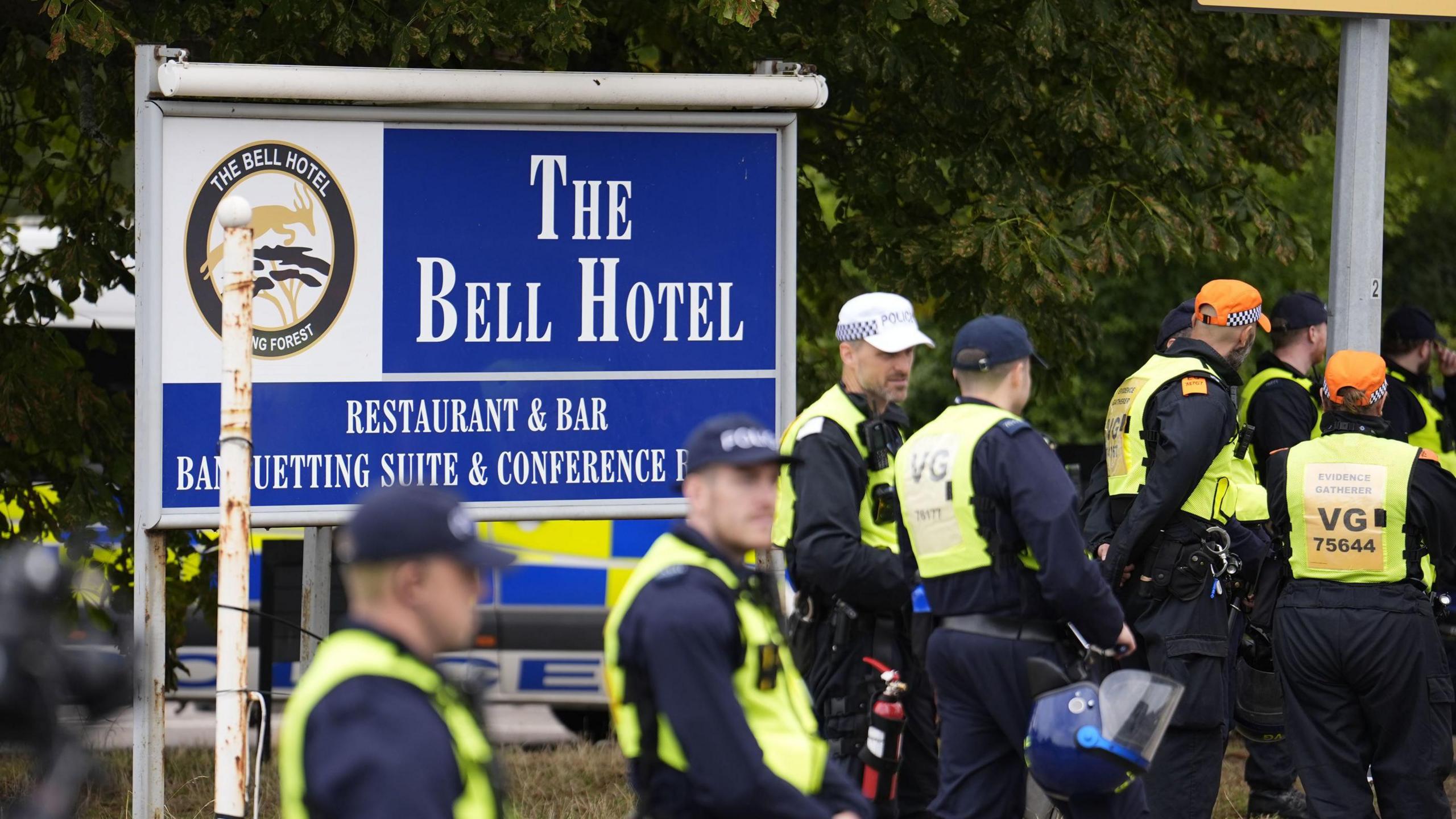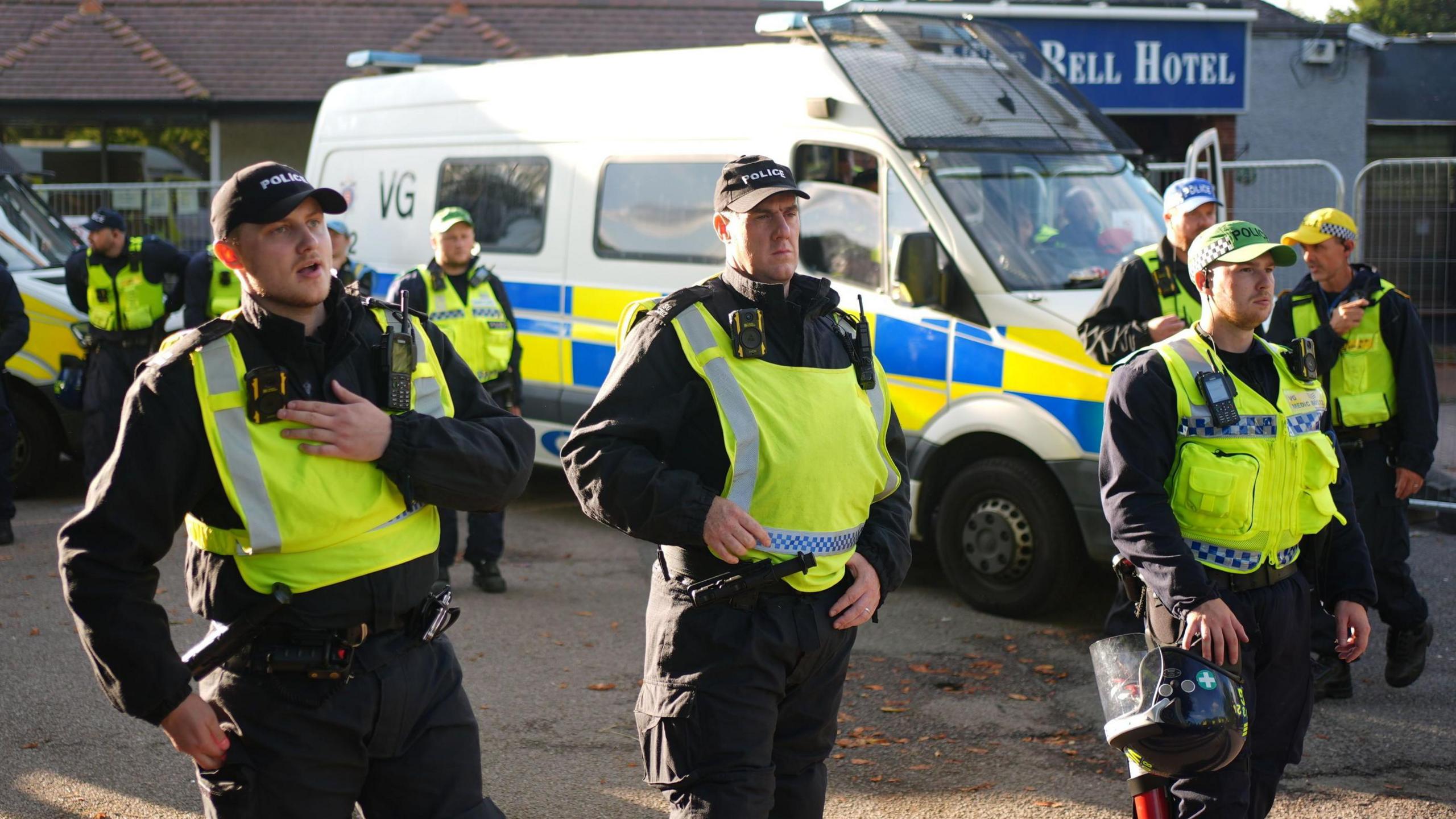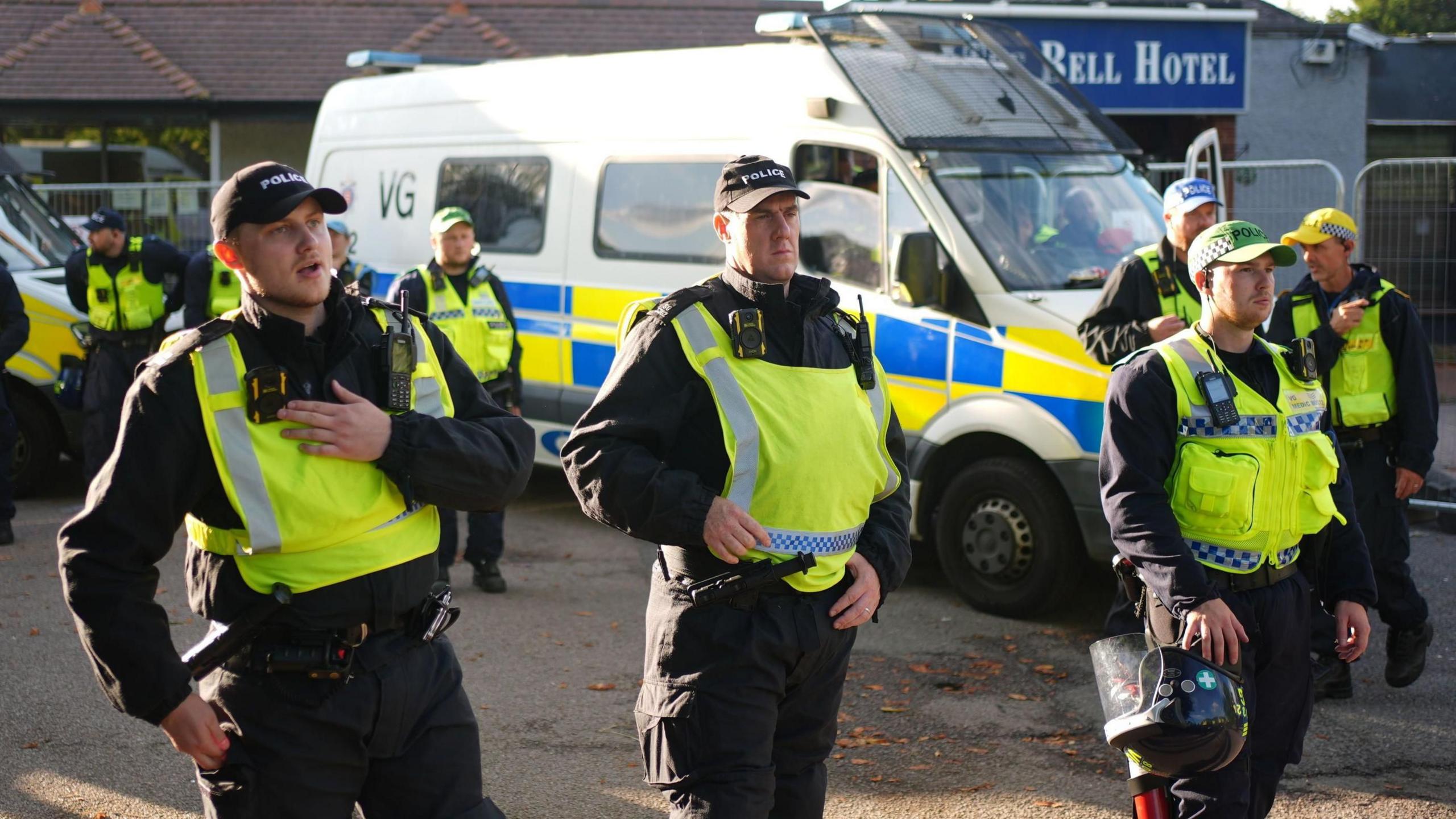Epping hotel order could spark protests, court told

The Bell Hotel has been at the centre of intense protests and counter-protests over recent weeks
- Published
An injunction temporarily blocking asylum seekers from being housed at an Essex hotel could spark further protests, the Court of Appeal has been told.
Lawyers for the Home Office and The Bell Hotel in Epping have been challenging a High Court ruling stopping migrants from living at the venue.
Mr Justice Eyre ordered all 138 asylum seekers must be removed from the hotel by 16:00 BST on 12 September, after legal action by Epping Forest District Council.
Judges considering an appeal against the ruling are due to hand down their judgement at 14:00 BST on Friday.
At the start of a day-long appeal hearing on Thursday, barristers said the "extremely high-profile nature of the issue" could be damaging for the asylum accommodation programme.
Other councils have announced their intentions to seek similar court injunctions against the use of hotels in their areas.
It followed Epping's local authority successfully arguing the hotel's use breached planning laws.
Edward Brown KC, for the home secretary, said the case "runs the risk of acting as an impetus for further protests, some of which may be disorderly, around other asylum accommodation".
'Hardship'
Piers Riley-Smith, for Somani Hotels, which owns The Bell Hotel, said the injunction created a "risk of a precedent being set".
He added the ruling was set to cause "the loss of accommodation for asylum seekers", impacting the Home Office's ability to perform its legal duties to them.
There was "no evidence where exactly they would go" if the judge's decision was not overturned, Mr Riley-Smith added, claiming he "overlooked" the "hardship" they would face.

Asylum seekers will face "hardship" if removed from the hotel, the court has been told
Before making his judgement on 19 August, Mr Justice Eyre refused an 11th-hour effort from the home secretary to get the case dismissed.
However, in court on Thursday, Mr Brown, acting for Yvette Cooper, said: "Her rights were clearly affected, and she ought to have been heard in the application."
He accused the council of not identifying a "significant planning concern" at the hotel.
The Bell Hotel previously housed asylum seekers from May 2020 to March 2021, from October 2022 to April 2024, and since April 2025.
The council asked for the injunction to be granted after thousands of people protested against the use of the hotel as asylum seeker accommodation.
It became the focal point of several protests and counter-protests in recent weeks, after a migrant housed there was charged with sexually assaulting a teenage girl.
Philip Coppel KC, for the local authority, argued there was "no compelling reason" for the appeal bid to be allowed.
Get in touch
Do you have a story suggestion for Essex?
Follow Essex news on BBC Sounds, Facebook, external, Instagram, external and X, external.
- Published26 August

- Published19 August

- Published15 August
